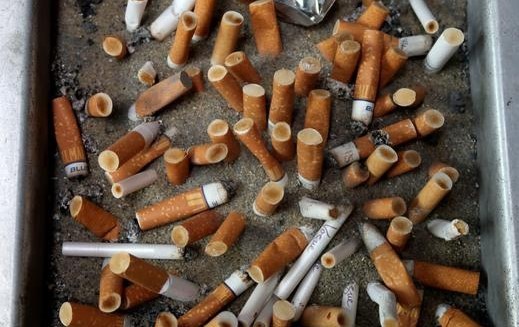Here's Why You Should Quit Smoking and How to Do It

Tobacco is considered one of the biggest health threats in the world. It kills an average of eight million people every year.
Seven million die annually due to direct tobacco use. An estimated 1.2 million people die from second-hand smoke.
According to the World Health Organization (WHO), 80 percent of all smokers across the globe live in low- and middle-income countries.
These countries experience the most tobacco-related illnesses and deaths due to heavy usage.
The report also states tobacco usage contributes to poverty. Smokers tend to divert funds reserved for household needs to buy tobacco.
Some countries employ young children to work on tobacco farms to boost family income. These children most often become victims of green tobacco sickness, an illness caused by the nicotine of wet tobacco leaves.

Health Issues
Smoking drastically affects a person's health.
Smokers often suffer from lung disease, emphysema, cardiovascular disease, and other respiratory illnesses.
Second-hand smoke can also raise the risk of sudden infant death syndrome, pregnancy complications, and low birth weight.
Second-hand smoke also causes 1.2 premature deaths annually.
Benefits Of Quitting
According to Medical News Today, quitting tobacco shows health benefits in as early as one hour.
- One Hour
The heart rate returns to normal in the first 20 minutes after the last cigarette smoked. Blood pressure and circulation also start improving.
- Twelve Hours
The body's oxygen levels increase as carbon monoxide levels return to normal.
Carbon monoxide is a fatal gas that prevents oxygen from circulating through the body.
- One day
The risk of heart attack decreases.
- Two days
The nerve endings responsible for the senses of smell and taste begin to heal.
- Three Days
Nicotine levels in the body drop to zero. Most people will experience nicotine withdrawal syndromes such as headaches and irritability.
- One Month
Lung function and capacity begin to improve.
- Nine Months
Former smokers will experience fewer lung infections.
The cilia, which helps fight infections, have healed.
- One Year
The risk of having coronary heart disease reduces by half.
- Five Years
The body's arteries and vessels begin widening, decreasing the risk of stroke.
- Ten Years
Chances of developing lung, mouth, throat, and pancreatic cancer are reduced by half.
- Fifteen Years
The risk of developing cardiovascular diseases is the same as a non-smoker's.
- Twenty Years
Risks of dying from smoking-related causes drop to the level of people who have never smoked.
How Do I Stop?
Quitting tobacco starts with acknowledging that you will stop smoking.
Smokers can choose to quit smoking in a snap.
Smokers can also opt for reducing the cigarettes smoked until they can settle into a life without smoking.
- Cold Turkey
This method is an all-natural way of quitting tobacco addiction.
The Cold Turkey method does not rely on aids, medication, or therapy.
The all-natural method requires willpower and self-discipline, especially when cravings are the strongest.
Smokers who choose this method benefit from support from family and friends.
They will also benefit from keeping oral substitutes like candy and snacks on hand.
- Nicotine Replacement Therapy (NRT)
NRT is a treatment that involves the use of products that contain low levels of nicotine.
NRT products do not have toxic substances from cigarettes.
NRT products include inhalers, lozenges, gums, and skin patches.
Smokers should consult a health care professional before using NRT products.
Are E-Cigarettes Safe?
E-cigarettes are less addicting than tobacco, making them a popular replacement for cigarettes.
Studies about the benefits and harm of e-cigarettes are still ongoing.
Subscribe to Latin Post!
Sign up for our free newsletter for the Latest coverage!

















